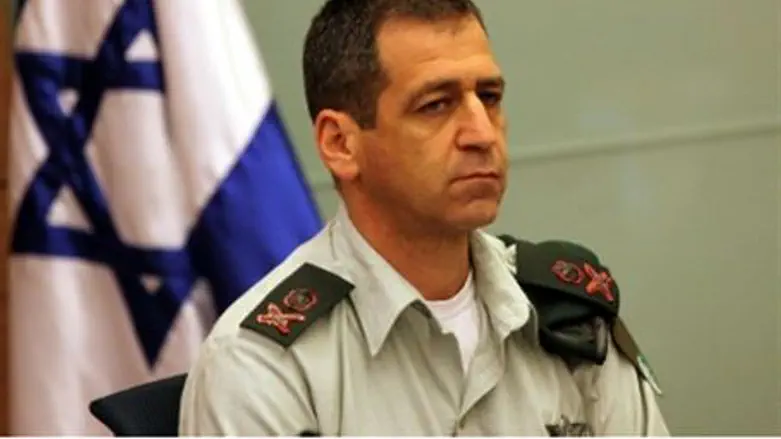
IDF Military Intelligence chief Maj.-Gen. Aviv Kochavi had sobering news for policy makers at the Herzliya Conference, predicting chemical warfare and a post-Assad Iranian-Hizbullah military force.
Kochavi told the audience at Thursday’s annual convention the Lebanon-based terrorist organization has teamed up with Iran to form a full-scale army, knowing Syrian President Bashar al-Assad’s days in office are numbered.
Hizbullah, which like Iran is comprised by Shi’ite Muslims, has long been generously funded, equipped and trained by the Islamic Republic, as has Assad, who has been protected by the terrorist forces and the elite Iranian Revolutionary Guards to this point.
The two have so far created a militia of 50,000 fighters to support the regime, he said.
“Hizbullah and Iran know Assad is finished, and are establishing an army in preparation for the post-Assad era,” warned Kochavi in his address to policy makers.
Hizbullah now has more than 60,000 rockets and missiles at its disposal, according to outgoing Defense Minister Ehud Barak, who said in his final testimony to the Knesset Foreign Affairs and Defense Committee, “The Middle East today is far less stable becaue the forces leading much of it are Islamist. In the short to long-term, we can redefine the Arab Spring as an ‘Islamic Winter,’ as we see radicals leading it to social and national extremes.”
In his assessment Thursday, Kochavi commented that Assad himself “plans to escalate preparations to use chemical weapons but has yet to give the orders to deploy them.”
There are at least five known separate sites in the country where chemical weapons arsenals are stored, each containing lethal agents that have long been maintained under strictly controlled conditions.
Israel has been monitoring the situation for signs that the chemical agents might be moved due to concerns that Assad was losing control over the sites.
The international community, as well as Israel, has expressed fears the chemical weapons could fall into the hands of terrorist organizations, including Al Qaeda, which is known to be operating in the country.
If Syria’s chemical weapons fall into such hands, the world may begin to experience terrorist attacks using such agents, researcher Yiftah Shapir of the Institute for National Security Studies warned in an interview with Arutz Sheva earlier this month.
Shapir said Hizbullah probably already possesses most of the chemical weapons and other unconventional means of attack that it could have acquired from Syria, since the two are allies in the axis with Iran, but is unlikely to use them.
